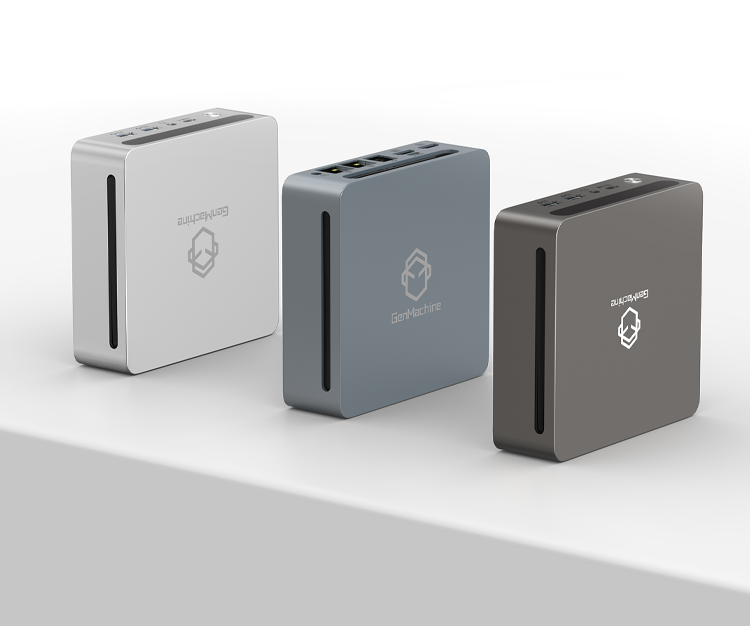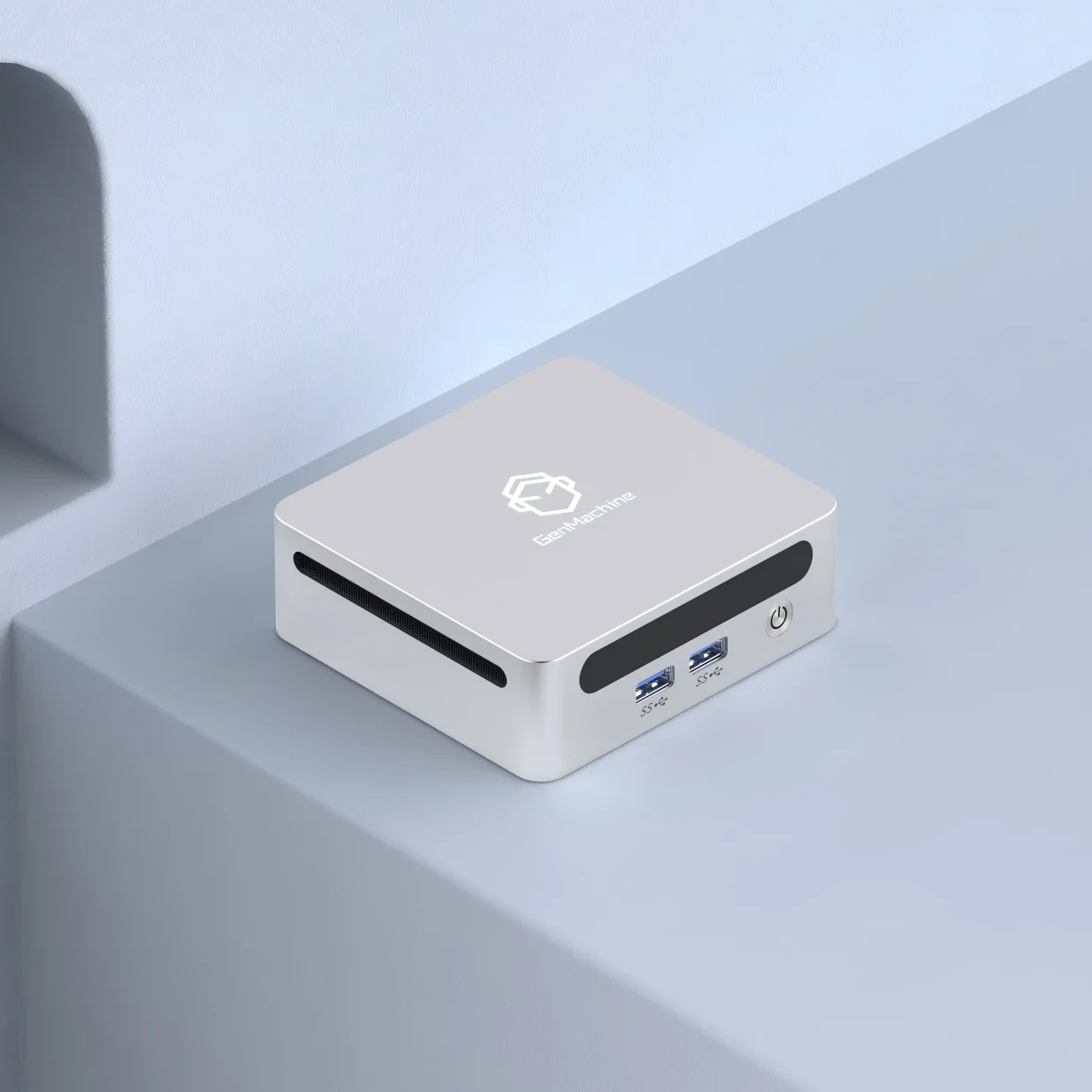In recent years, Mini PCs have grown from being niche gadgets into serious contenders for everyday computing. Their rise is fueled by the demand for smaller, energy-efficient machines that don’t compromise too much on performance. At the same time, traditional desktops are still widely used for their raw power and flexibility. That leaves many people wondering: can a Mini PC truly stand in for a desktop, or is it still just a secondary device? To answer that, it helps to look at what these tiny machines do well, and where they still fall short.
The Advantages of Mini PCs
1. Compact and Space-Friendly
A Mini PC takes up about as much room as a thick novel, which is a blessing if you’re tired of staring at a giant tower on your desk. People living in dorms or working out of small home offices often appreciate how easy it is to tuck one of these little boxes behind a monitor and forget it’s even there. Some models even come with mounts that let you attach the unit directly to the back of a screen, making the whole setup almost invisible.
2. Energy Conscious
Because the parts inside aren’t built to push extreme wattage, they sip power instead of guzzling it. If you leave your computer on all day, the savings stack up over time—not just on your electric bill but also on the amount of heat the room collects. That reduced heat output is especially noticeable in the summer when you don’t want your machine doubling as a space heater.
3. Quiet Companion
Some Mini PCs run almost silently. If you’ve ever tried to write or watch a late-night movie while your desktop’s fans roar like jet engines, you’ll know how big a deal this is. The quiet hum, or no noise at all in some fanless models, makes them perfect for a living room or study corner. This quietness also helps in creative work, where focus can be easily broken by background noise.
4. Everyday Reliability
For a big slice of the population, “computer work” means emails, spreadsheets, browsing, and maybe a little light photo editing. Mini PCs handle that list without breaking a sweat. Pair one with a fast SSD and enough RAM, and you’ll hardly notice you’re not on a traditional tower. Some newer models even come preloaded with productivity software and modern ports, so setting up a workspace feels seamless.
5. Easy to Move Around
They aren’t laptops, but they’re close. You can unplug a Mini PC, slip it in a backpack, and set it up somewhere else in minutes. Freelancers or students who shift between different locations often find this flexibility more useful than they expected. Families also use them as multi-purpose machines, moving one device between the living room for streaming and a desk for schoolwork.

Cons of Mini PCs
1. No Real Upgrade Path
If you’re the kind of person who enjoys swapping out graphics cards every two years, a Mini PC will frustrate you. In many models, the CPU is soldered in place, and space is too tight for extra drives or expansion cards. That means when it starts to feel slow in a few years, your only real option is buying a new machine rather than breathing new life into the old one.
2. Power Limits
Yes, some Mini PCs are surprisingly capable, but throw heavy-duty tasks at them—think rendering a video project or running a demanding game—and you’ll see the cracks. The performance ceiling is lower, and you can’t escape that reality. They can manage bursts of power, but long, sustained workloads tend to push them beyond what they were designed to handle.
3. Price-to-Performance Gap
Oddly enough, you don’t always save money with a Mini PC. Dollar for dollar, desktops often give you more raw performance. The small form factor itself adds to the cost, so budget-minded buyers might feel they’re paying more for less. If you’re someone who wants maximum performance for a set budget, a tower build will almost always stretch your money further.
4. Heat Management
Packing all the components into a tiny shell leaves little room for airflow. Run the system hard for an hour or two and it might throttle itself just to stay cool. It’s the trade-off for compact design, and it shows up sooner in heavy workloads. Some users also notice the chassis can get uncomfortably warm to the touch, which is another sign that cooling has its limits.

Who Should (and Shouldn’t) Replace Their Desktop
Mini PCs work best for people who need a reliable machine for light to moderate tasks and who value space efficiency. If your typical day involves juggling emails, writing reports, streaming a few shows, and maybe some online classes, then a Mini PC is more than enough. For those considering one for productivity, our guide to the best office Mini PCs showcases models that deliver smooth performance without taking up precious desk space. They also make excellent home theater units — quiet, sleek, and easy to hide away.
On the flip side, anyone dealing with heavy creative projects or high-end gaming will hit the limits quickly. Tasks like editing long 4K videos, running complex simulations, or playing the latest graphics-intensive titles are where a desktop tower still shines. If you see your computer as an investment for the next five to seven years of upgrades, a Mini PC will feel restrictive.
Quick Comparison
| Best Fit For | Not Ideal For |
|---|---|
| Students and remote workers | Gamers needing top GPUs |
| Professionals doing office tasks | Video editors and 3D artists |
| Families using it as a shared PC | Engineers running simulations |
| Home theater setups (HTPC use) | Power users who upgrade often |
Conclusion
Mini PCs have matured into capable little machines that surprise many first-time users with how much they can handle. They save space, sip energy, and run quietly, which makes them attractive for modern work-from-home setups and entertainment systems alike. For a wide group of people, they can easily step in as a daily driver without missing a beat.
That said, expecting them to match the brute force of a desktop tower isn’t realistic. Desktops remain the kings of raw power, upgradability, and long-term flexibility. In the end, it comes down to priorities: if you value simplicity, compact size, and quiet efficiency, a Mini PC is a smart choice. But if you demand maximum performance and room to grow, stick with the traditional desktop—it’s still the heavyweight champ.





